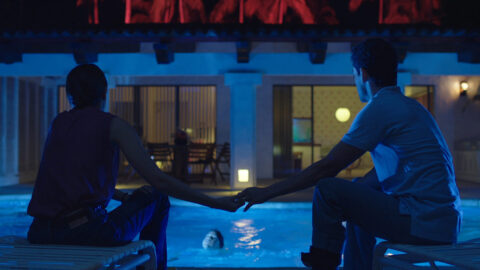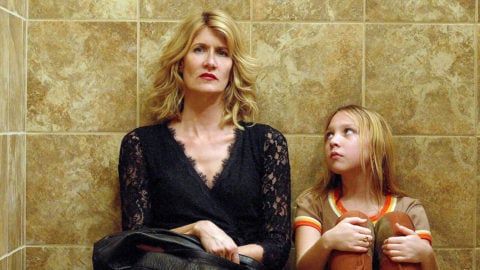Sundance: The Miseducation of Cameron Post
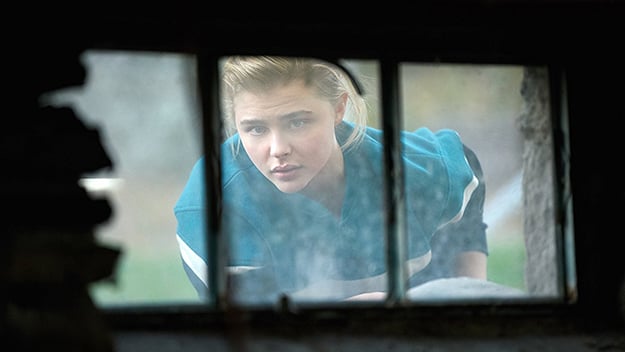
In 1999, director Jamie Babbitt premiered But I’m a Cheerleader at the Toronto International Film Festival. The film was a cheeky, rebellious rom-com set at a gay conversion therapy camp. At the time, many didn’t know such camps even existed, and they were presented in the film in a thoroughly ridiculous manner. Nearly twenty years later, gay conversion therapy is no longer a joke. Nor is it a relic from the past we thought would disappear along with our newfound enlightenment.
Even in 2011, when author Emily Danforth penned her best-selling novel The Miseducation of Cameron Post, she told me she’d considered the book “recent historical fiction.” Now she’s greatly saddened by how relevant the story’s become, with conversion-therapy proponent Mike Pence ascending to the Vice Presidency. That’s why she sold the book’s rights for director Desiree Akhavan (Appropriate Behavior) to adapt for film. “I’m thrilled this film is ready now,” Danforth says, “to speak to all the dangerously misguided Mike Pences of this country.”
Starring Chloë Grace Moretz as Cameron and Quinn Shephard as Coley, two young Evangelical lovers who get caught having sex at prom, the film follows Cameron as she navigates a Christian “boarding school” called God’s Promise—really, a place where the students undergo intense therapy to try to “cure” their same-sex attractions. The queer Akhavan is not Evangelical, but she felt she could find a way into this world that would portray the school’s teachers and therapists as misguided people, not just caricatures of villains.
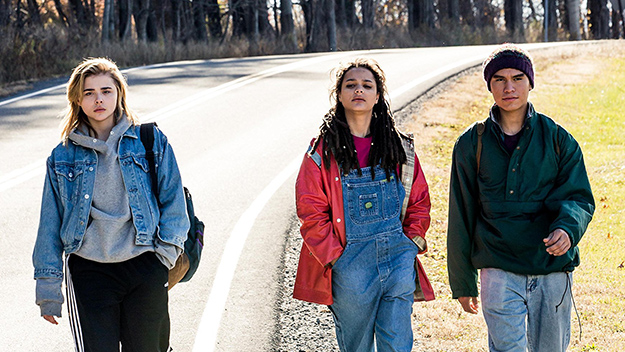
“I was raised Irani, in a very isolated Persian community where I heard my auntie say they’d rather their kid have cancer than be gay,” Akhavan says. “And I still loved her. That’s the thing. Some of the best people do the ugliest things.”
Both Danforth and Akhavan wanted the film to be as accurate and authentic as possible. There’s pressure for queer filmmakers to get it right when depicting queer relationships, because these films will enter a very small canon, becoming learning lessons for young queer people finding themselves.
“I was nervous before we got to set. I thought, ‘Will Chloë have swagger? Will she pull it off?’” Akhavan says. The young actor isn’t queer, but Akhavan took a chance on her. “And she does pull it off. She fucks like a dyke!” Akhavan says the multiple sex scenes are uncut, running in single long takes. She had a lot of lesbian crew members, and she says she often held her breath, waiting to see if what the actor could produce on screen would seem realistic. There was only one actor she had to take aside and in the gentlest, most respectful way possible, teach her how to “top,” i.e. be the aggressor. She couldn’t have done all this if the set hadn’t been one founded on respect. Often it was just Moretz and her scene partner leading the way, while all cast and crew besides the cinematographer and focus puller stayed on set. She wanted real intimacy, something she sees lacking in many queer films.
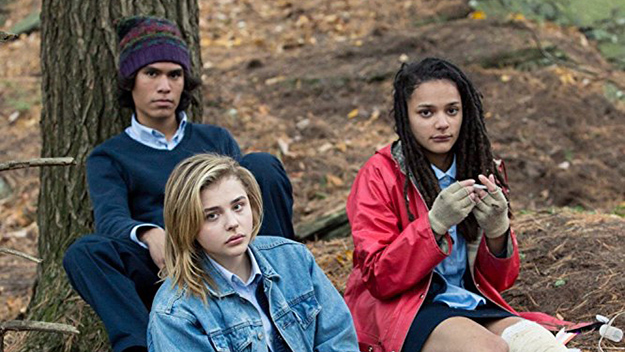
“The scene in Blue Is the Warmest Color is beautifully shot, but I fucking hate it,” Akhavan says. “I know some lesbians love it and some hate it, but the whole sequence seemed like it was there to finally answer once and for all the question, ‘How do lesbians have sex?’ Like, ‘Let’s look at it in a wide master that lasts nine minutes long, and there’s lots and lots of scissoring.’” She says it’s not that Abdellatif Kechiche did his sex scene “wrong,” but that she felt it lacked intimacy, love. And she was unsettled by the accusations leveled at the director in his mishandling of the young actors’ boundaries. It’s already hard enough to portray queer sex honestly and get it past the censors. But I’m a Cheerleader was slapped with an NC-17 rating because of a slow panning shot up Natasha Lyonne’s body as she’s masturbating and a line of dialogue stating that Lyonne’s character Megan “ate Graham out.” She cut those and still got an R rating.
Akhavan harkens back to the queer films of the 1980s that informed how she approached the love and relationships of Miseducation, specifically The Hunger and Desert Hearts —she licensed the latter for a scene in which Cameron and Coley watch a film and take a step into romance. The film is set in the ’90s, and “Cameron is really discovering her sexuality by watching movies like Personal Best, wearing out her copy of The Hunger and having a private life with in her room with her VCR.” Akhavan recalls having that same private life of her own as a child.
But I’m a Cheerleader was one of those movies, too, a cult classic that reassured thousands of closeted kids that there was, in fact, nothing wrong with them. The Miseducation of Cameron Post may be a more somber telling of the story of gay conversion therapy, but it may prove to be just as important.
The Miseducation of Cameron Post premieres January 22 at the Eccles Theatre and screens again January 23, 25, 26, and 27.
April Wolfe is a film critic, reporter and filmmaker. She was formerly the lead critic for LA Weekly.



